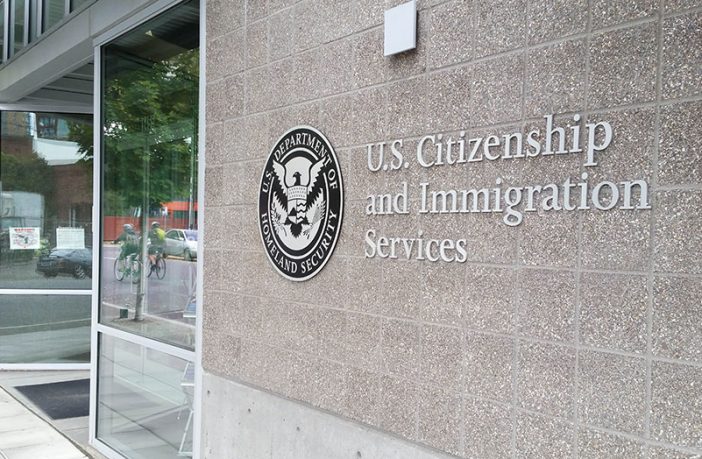The U.S. Citizenship and Immigration Services (USCIS), the agency responsible for administering the naturalization exam, is revising the citizenship test – allegedly making it more difficult – according to CNN. Although the agency announced its intention of changing the civics portion of the exam and formalizing a decennial revision process in 2019 (the last time the test was revised was in 2009), CNN reported on November 10 that USCIS “appears to be nearing the finish line for its latest slate of changes.”
(Update: USCIS announced the revised civics test on November 13, which will go into effect on December 1.)
The naturalization exam’s civics section consisted of 100 questions, which was increased to 128. During an interview, citizenship applicants were asked up to ten of these questions, and had to get at least six correct to pass. Now the number of questions asked has been increased to 20, while retaining the same proportion of questions that examinees would have to get right (12/20, i.e. 60 percent). “The memo also says USCIS officers will ask all 20 questions, rather than stopping when an applicant reaches the passing score,” the CNN article states.
Moreover, “the agency says it added more topics touching on specific amendments to the Constitution, the ‘rationale for the legislative branch structure,’ and an item on ‘American innovations.’ It also includes more ‘why’ questions, though it’s unclear what that entails.”
Predictably, CNN – and other pro-mass-immigration media outlets – are not particularly happy about these changes, depicting them as part of the Trump administration’s alleged crackdown on legal immigration (in fact, naturalizations rose under Trump from 707,000 in FY 2017 to 843,000 in FY 2019). The network’s Priscilla Alvarez expressed concerns that the revisions “could make the test harder for immigrants seeking citizenship.” Whether that is true remains to be seen, but the fears betray a degree of the “soft bigotry of low expectations,” as if immigrants were incapable of studying harder to pass a slightly more challenging naturalization exam.
The concerns also expose a substantive philosophical disagreement over something as fundamental as the meaning and significance of citizenship itself. For the pro-mass-migration crowd, even historically high immigration levels (over 1 million legal admissions per year, and almost 1 million naturalizations annually) are never sufficient, and things like green cards and even citizenship certificates should be handed out more generously. Anyone who disagrees must be a xenophobe.
Other Americans, however, wonder whether it makes sense for something as sacred as U.S. citizenship to be given away too easily. The reality is that naturalization exams should be reasonably challenging. (Given that the current pass rate is 90 percent, it is legitimate to ask if the test is perhaps not too easy.)
Of course, the proponents of easy citizenship would probably point out that many Americans – especially the young – would fail the civics test, but that is primarily an indictment of our education system (also keep in mind that prospective citizens are given study guides with all questions and answers, which American survey takers were not given).
But the essential point is that citizenship is not merely a glorified green card – allowing people to live and work in the U.S. permanently – but the process of bringing a foreign citizen into our national community, with all the rights and responsibilities that entails. New citizens gain the right to vote, and thereby influence our politics, run for office, and potentially obtain a government job (which could include access to classified information). America’s Founding Fathers understood that maintaining our liberty-centric constitutional republic requires a great deal of civic virtue, knowledge, and engagement on the part of the citizenry. There is thus nothing wrong with asking a little bit more of prospective citizens.




